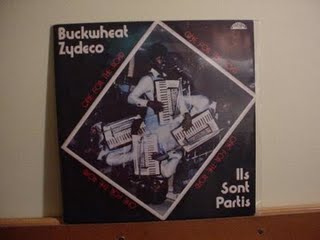Mauro Giuliani – Complete Guitar Concertos
Giuliani: Guitar Concertos Nos. 1-3 - Grand Quintet - Variations for Guitar and String Quartet (2007)

CD1 Guitar Concerto No. 1 in A Major, Op. 30 01. I. Allegro maestoso 02. II. Siciliana - Andantino 03. III. Polonaise - Allegretto Claudio Maccari - guitar Guitar Concerto No. 3 in F Major, Op. 70 04. I. Allegro moderato 05. II. Andantino alla siciliana con variazioni 06. III. Polonaise - Allegretto Paulo Pagliese - guitar CD2 Guitar Concerto No. 2 in A Major, Op. 36 01. I. Maestoso 02. II. Andantino 03. III. Rondo - Allegretto Claudio Maccari - guitar Grand Quintet for Guitar and Strings in C Major, Op. 65 04. I. Introduzione 05. II. Theme and Variations on "Nel cor più non mi sento" 06. III. Polonaise Paulo Pagliese - guitar Variations for Guitar and Sting Quartet, Op. 102, on "Nume perdonami in tale istante" from Generali's Baccanali di Roma 07. I. Introduzione, thema, Variations Orchestra Ensemble Ottocento
An acclaimed Italian guitar virtuoso and composer, Mauro Giuliani, along with Fernando Sor, was one of the last great classical proponents of his instrument until its revival in the early twentieth century. He studied counterpoint and the cello, but on the six-string guitar he was entirely self-taught, and that became his principal instrument early on. Italy abounded with fine guitarists at the beginning of the nineteenth century (Carulli remains the most familiar today), but few of them could make a living because of the public's preoccupation with opera. So Giuliani embarked on a successful tour of Europe when he was 19, and in 1806 he settled in Vienna, where he entered the musical circle of Diabelli, Moscheles, and Hummel. He solidified his reputation with the 1808 premiere of his Guitar Concerto in A major, Op. 30, and was soon heralded as the greatest living guitar virtuoso. Even Beethoven noticed Giuliani, and wrote a few guitar pieces especially for him. Perhaps to return the favor, Giuliani played cello in the 1813 premiere of Beethoven's Symphony No. 7.
Around 1814, Giuliani was named virtuoso onorario di camera to Napoleon's second wife, Empress Marie-Louise. But, deeply in debt, he returned to Italy in 1819. An 1823 trip to London brought him acclaim in the English-speaking world, and resulted in a short-lived fan publication called The Giulianiad. After this visit, the guitarist settled in Naples, enjoying the patronage of the court of the Kingdom of Two Sicilies. He became adept on an obscure instrument called the lyre-guitar (which was marketed mainly to female amateurs), and perfected the design of the "ghitarra di terza," an instrument with a shorter fingerboard than that of the regular "Spanish" guitar.
Giuliani published more than 200 works; his most durable pieces include three lyrical concertos in a late Classical/early Romantic style, and, for solo guitar, the Grand Overture, Op. 61, and a series of six sometimes long-winded suites, Le Rossiniane, based on tunes by Gioacchino Rossini. As a special help to other players, Giuliani notated his works on the treble clef in an innovative manner, with the rests and note-stem directions distinguishing the melody from the bass line and inner voices. ---James Reel, All Music Guide
download: uploaded anonfiles yandex 4shared solidfiles mediafire mega filecloudio
Zmieniony (Niedziela, 24 Listopad 2013 00:08)








